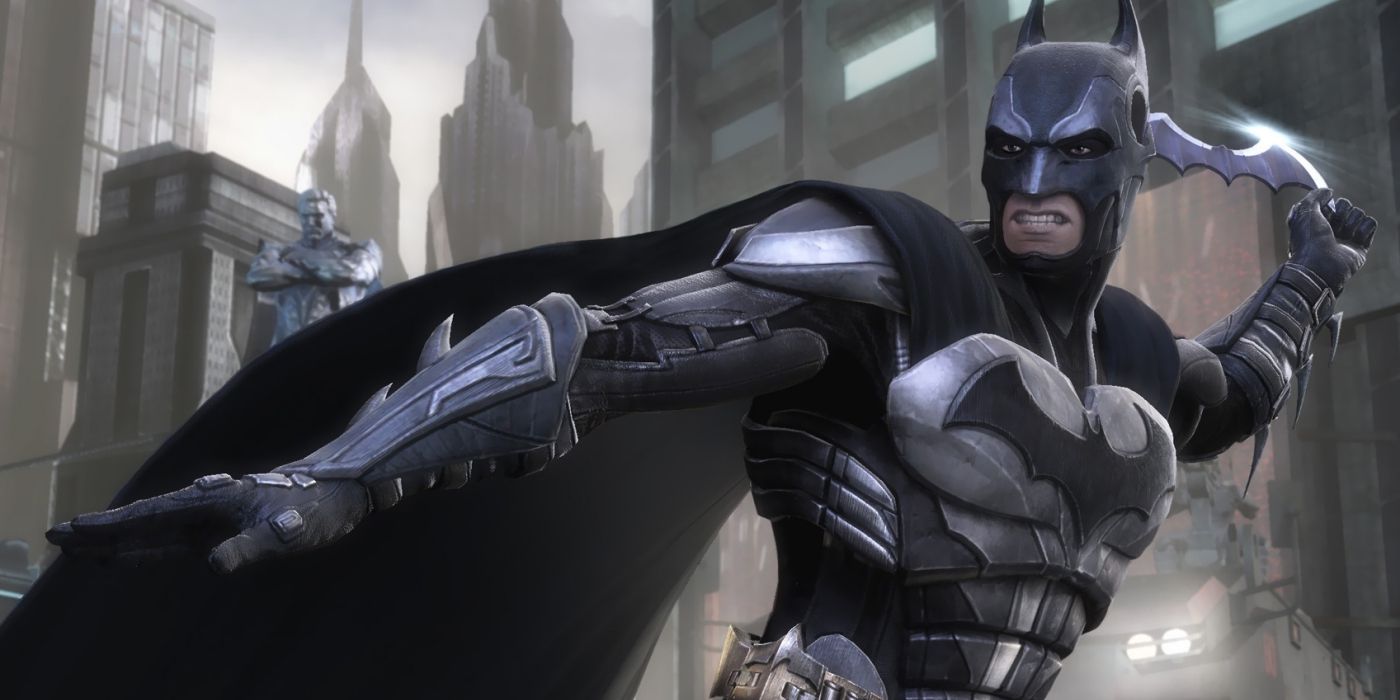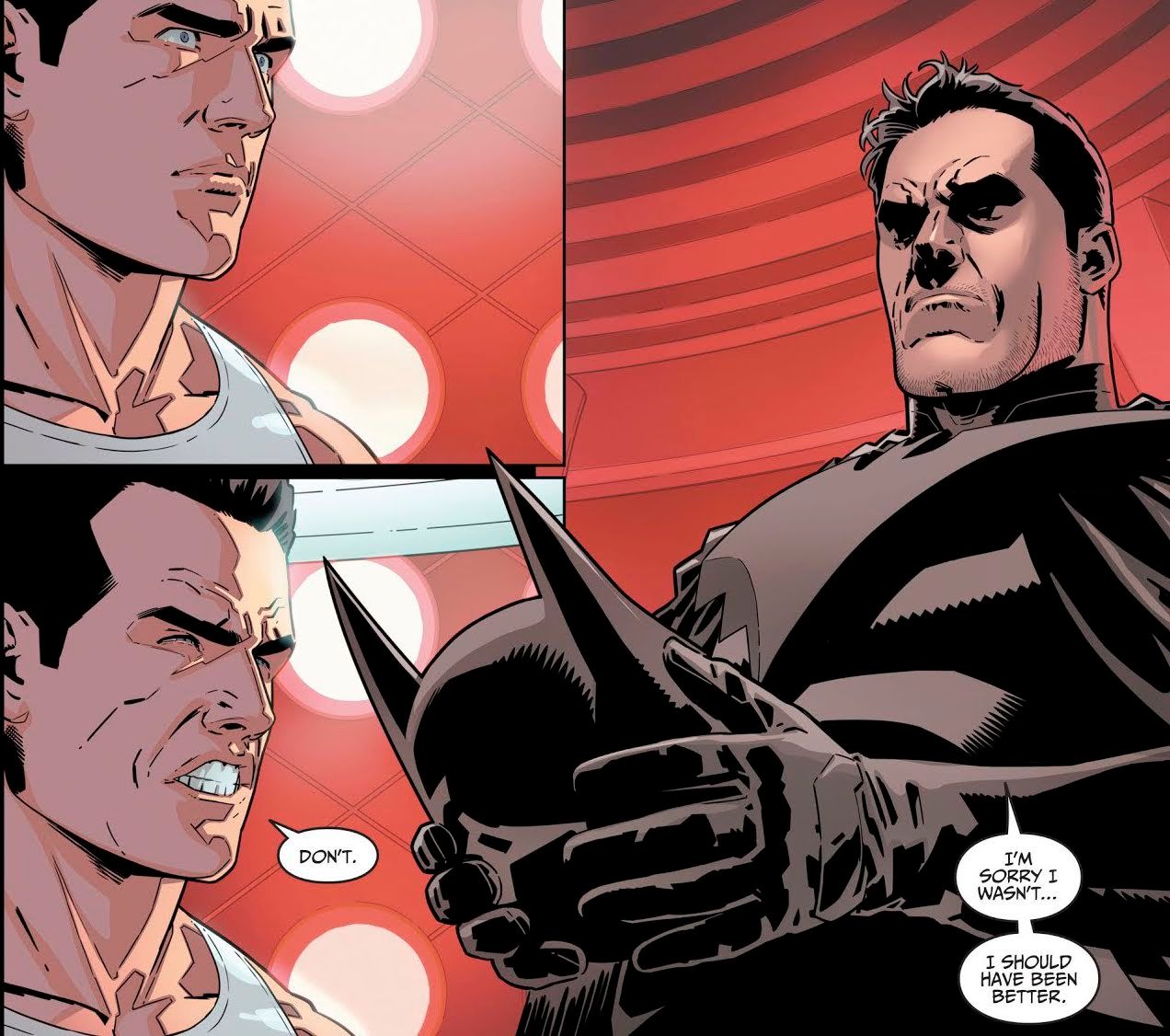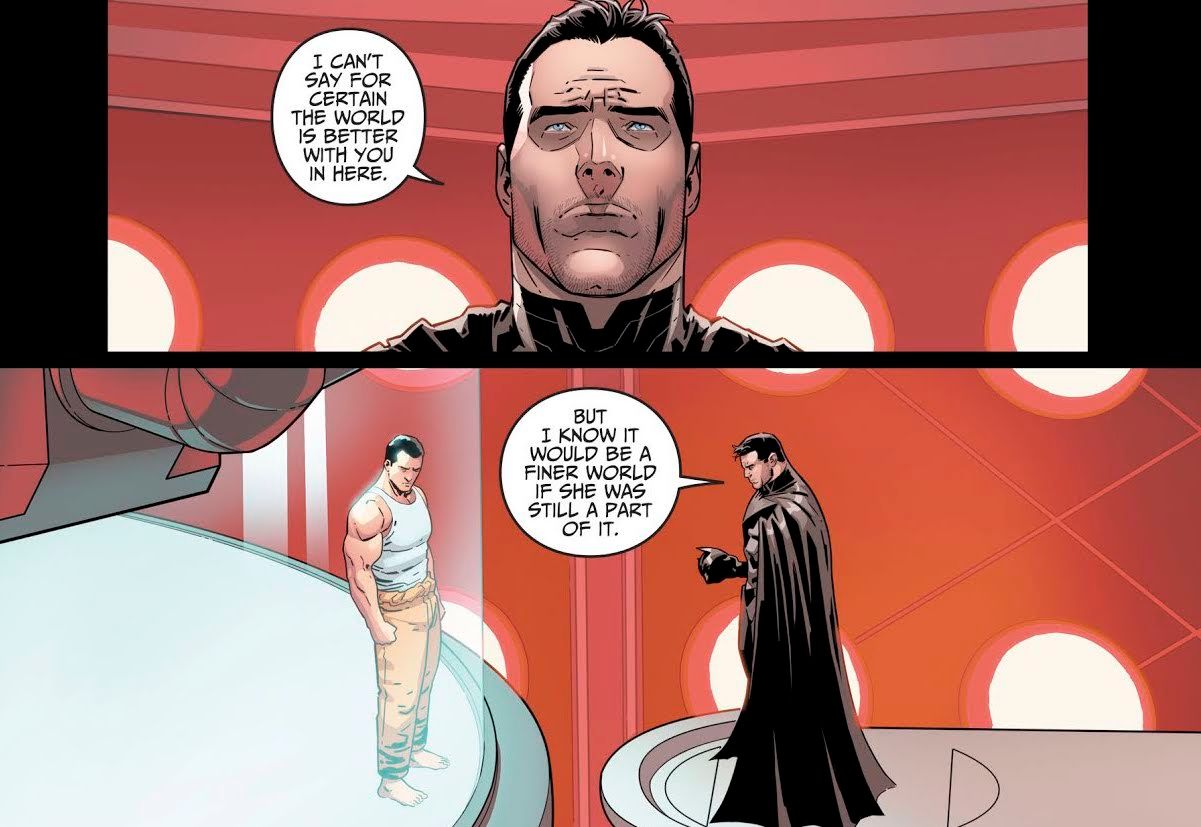WARNING: The following article contains major spoilers for DC's Injustice 2 Annual #2 from Tom Taylor, Bruno Redondo, Rex Lokus and Wes Abbott, on sale now.
Batman and Superman have torn the entire Injustice Universe apart trying to show each other what justice really means. On one hand, Superman believes in a dictatorship under his iron-fisted rule, while Bruce Wayne's mantra is that mankind must be free to make their own choices, whether they're good or bad.
RELATED: Injustice/He-Man Crossover Finally Turns [REDACTED] Into a God
Of course, Kal-El has every right to be biased after Joker helped murder Lois Lane and their unborn child, but nonetheless the Dark Knight won't stop trying to show his followers the light. That led to all-out war, with neither backing down or admitting fault anywhere down the line. DC's Injustice 2 Annual #2, however, does bring some small semblance of closure to the rivalry, as it officially ends their friendship with Bruce admitting his biggest regret and failure to Clark.
The book focuses on their friendship and, more so, their brotherhood. Bruce remembers when he was shot by Nazis at his charity refugee event, and Superman helped solve the case with Lois. A friendly visit from Martha Kent and her husband, Jonathan, leads to this nostalgic trip down memory lane, as Clark's mom brings him homemade pie and Jonathan takes Bruce off duty and for a father-son drink; all to help Bruce cope with Alfred leaving the Batcave to find some peace in the outside world. Their heart-to-heart eventually drums up questions Bruce never asked himself, and dredges up emotions he never fully processed about losing his best friend.
Jonathan talks about Batman being his son's hero, and as they get into Lois' death he asks Bruce if he ever tried to help Clark, not as Batman to Superman, but as a man to another man who just lost the love of his life. Jonathan isn't condoning Clark's actions, but he reminds Bruce they're all children, and that Superman's dark turn came from something they all tried to nurture his entire life: Superman's humanity.
RELATED: Injustice 2: Batman's Resistance Loses Its Most Important Member
Bruce realizes that this fallibility and weakness is something even he experiences, as Pa Kent asks him what would he do if he could have killed his parents' murderer at the moment it happened. With this weighing on his mind, a somber Bruce unmasks in front of Kal-El (who's imprisoned under red sunlight), ignoring the Kryptonian's taunts.
Instead, he apologizes for not being better, clearly figuring out he showed no empathy towards Clark. When you go back to these early Injustice comics, they never really got to discuss Superman's feelings; both were simply thrust into action with no time to consider the human side of things. Batman went into Justice League-mode, trying to catch Joker and keep Superman from him, while Superman didn't mourn -- he turned into a vengeful god seeking retribution.
Bruce, however, admits how much he regrets not stopping to have a talk with Clark, the man and not the Superman. In hindsight, he knows maybe there was a glimmer of hope where his words could have changed the bloody destiny they charted thereafter. Sadly, Kal-El doesn't care for these words anymore, as it's too little, too late, but Bruce still needed to get this guilt off his chest.
He does admit, however, that while he can't say if the world is better off with Superman imprisoned, he does know for a fact it is worse off with Lois gone. It's little consolation because Superman is a true villain now, but it's a beautiful moment where Bruce clearly regrets that, as good a superhero he is, he failed to be a better man for his brother.
RELATED: Injustice 2: Brainiac's Invasion Has Killed Three Major DC Villains
This exchange happens in the early days, all as a precursor to Injustice 2, where Bruce would have to release Superman to help stop the invasion of Brainiac's forces, but the conversation is honestly way overdue. The World's Finest are at a point where their relationship is irreparable, but it's good to at least see one party admitting he was wrong.



